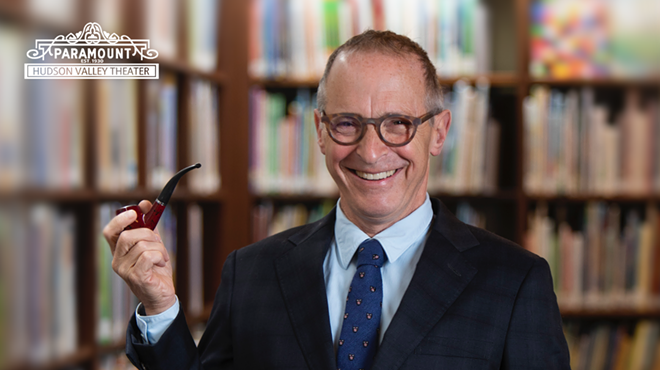Work. Budget. Save. Invest. Retire.
The basic formula to financial health is amazingly simple, but Americans are getting lost somewhere along the way. This nation is in financial crisis with soaring rates of mortgage default, credit card and student debt, and poor savings habits. To get ahead today, you truly have to come out from behind. Steve Mannato, a registered representative with William Tell Financial Services, and Sharon Pilz, a trust and investment officer at Salisbury Bank, help bring you back to the basics with a financial timeline for each period of your life.
Under 21
Establish savings habits. If there is a key to financial success in life, it starts here with parents teaching their children to save. “I think the biggest thing that I work with concerning young clients is the discipline of saving money,” Mannato says. “[Americans] are the worst savers in the world, even though we have most of the wealth of the world.” Mannato suggests starting slow, saving $25 to $50 a month in a money market or savings account with a good interest rate, and then leaving it alone. This builds discipline, which will pave the way for making investments in the future. “The last thing you want is someone to invest and then six months later say, ‘I need the money back,’” Mannato says.
Practice sticking to a budget. Young adults typically have jobs that don’t pay very well, and learning to budget is crucial. Pilz says to consider expenses and income, then use the “pay yourself first” strategy and deposit a set amount right away into a savings vehicle. The rest can go toward expenses, which, with timely payments, will help build a solid credit history.
22-30
Continue developing savings strategies. Pilz suggests that an additional portion of your income should be saved for the unexpected. “Set up an emergency fund, so you have money put aside for any unforeseen things taking place in your life that you’re going to need that cash for,” she says. Whether for a car breakdown or a plane ticket to see a sick relative, this fund will be the stash that helps you avoid racking up credit card debt and interest fees. This is also the time when student loans become due, and Pilz recommends sitting down with a customer service representative at the bank and discussing consolidation options that may lead to a lower rate. “It’s worth taking a shot to sit down and do that, because it may make it much easier to pay back,” she says. Mannato believes that sometimes advisors need to be creative with their clients—and he devised a savings tactic that can increase your savings balance and help prepare you for the real world. “Many kids are now living at home until a later age,” he says. “Use this as a learning experience, if you’re living at home pretend that you have an apartment.” The money that would be spent on rent and utilities should go into savings, helping to demonstrate if someone is financially ready to move out while simultaneously increasing their nest egg.
Develop goals and start investing. “What are your financial goals?,” Pilz will ask you, “and what are your time horizons for the short, median, and long term? Do you want to be purchasing a home in 10 years? Having children? Then it’s time to start thinking about investing.” Pilz’s first recommendation is to look into a 401K plan before anything else. “Especially in your 20s, you should start to save into your 401K plan,” she says. “Even if it’s a very small amount of money, you’re not taxed on the money that goes into your 401K plan and the earlier in life you start saving for your retirement, [the more] that money keeps compounding through the years.” Then, Pilz advises beginning to make other investments. A meeting with a financial advisor will help determine your risk tolerance, and what type of investments will be best for you. “When you’re 20 to 30, if you invest for the long term you can take more risks by investing in a growth fund or international equity fund,” Pilz explains. “But if you tell me your heart stops if you lose $1,000, we may look to put together a portfolio that has a mixture of not 100 percent stocks, but maybe 80 percent stocks, 10 percent bonds, and 10 percent money market [funds].”
30-40
Hone investments. When you begin placing money in different investment categories like equities, bonds, and money market accounts, an advisor will help create an asset allocation model for you. This model illustrates your investments and should represent your goals and risk tolerance. Pilz explains that it’s critical to review your asset allocation on a regular basis to make sure it’s still meeting your needs. “We monitor that consistently,” she says. “People’s lives change, what is applicable to you today might not be next year.”
With the uncertain future of Social Security and many employers doing away with pension plans, Mannato strongly encourages clients to take advantage of 401K plans or, if unavailable or a client is self-employed, IRAs. He says an ideal amount to save to a 401K is six percent of your income, because many companies will match that. “Increase savings gradually each year so if you start at six percent, let’s strive to raise that by one percent the next year, and one percent the following year,” Mannato suggests. “Then you can budget that into your money system so that it’s not that big of a hit. Savings into a 401K plan is either going to make or break someone who wants to be able to retire at a reasonable age.” Another option is the IRA, or individual retirement account, which is a personal savings plan that offers tax benefits. Roth IRAs are similar but grow tax-free without a tax deduction for contribution, while regular IRAs grow tax-deferred but contributions are tax-deductible. Speak to an advisor to establish the best method for you. “It depends what your employment status is, what your tax bracket is, which could be good for you in terms of tax savings,” Mannato says.
Prepare for large expenses. Mannato says at this point multiple things are happening in people’s lives: They want to buy a house, they’re having children, and want to make sure they’re saving enough for these events. In terms of home buying, Mannato stresses the importance of good savings habits and offers services that help clients budget their money according to when they want to purchase a home and how much money they want to put down. If your plan to buy a house is more short-term, which would be less than two years, Pilz recommends certain types of accounts. “You’d want to look for CD [certificate of deposit] or money market funds that have good rates to put your money aside for the house,” she says.
When couples start having children, Mannato urges clients to set up college savings accounts as early as possible. “The cost of education goes up more and more each year, and the longer you wait, the more you’re going to get behind the eight ball,” he says. Pilz recommends parents start investing in a growth fund, which is a mutual fund that appreciates based on investments in the growth stocks of burgeoning companies. “Let’s say you could only afford to put $50 a month in,” she says. “You could open an account for the baby, send money to a mutual fund every month for a number of years and you’ll be surprised how quickly that money could grow.” Mannato says there are a number of investment vehicles available for college savings, like the 529 educational plan, which offers special tax benefits. Sitting down with an advisor can help determine a client’s savings potential and provide direction toward the best plan.
Mannato also emphasizes the importance of estate planning for couples who have just purchased a home and have started a family. “If anything happens to the parents and both of them pass away, who’s going to take care of the upbringing of the children? Who’s going to handle the financial matters pertaining to the children?,” he asks. “There are a lot of individuals that don’t think of this because they’re concerned about the next paycheck, the next bill. My role is more of an educator and planner more than anything.” An advisor can help figure out the financial aspects of estate planning, and even refer you to an attorney who can help with other portions like health care proxy and successor/custodian orders.
40-50
Take advantage of peak earning years and continue saving. Mannato says in this pre-retirement phase, people are making the most income and should keep increasing savings geared toward retirement. “We’re continuing to save or increase savings to their 401K or any savings plan that’s going to help them toward retirement, which may only be 12 years away if they’re 50 and want to retire at age 62,” he says. Remain creative with savings strategies. “If you and a person go out to dinner and it’s buy one/get one, and if you’re going to spend $20 each and you save $20,” Mannato says, “you were going to spend that $20 anyway. Just bank it now.” Try saving spare change or stashing away dollar bills, which will quickly add up without noticeable detractions from your wallet.
Get a check-up. Mannato wants clients to be aware of where they are financially. Ensure that your spending is within your income, and that you’re still able to save. “Individuals need to sit down with a financial advisor once or twice a year just like people go to the doctor,” he says. “Individuals who don’t go to the doctor for three or four years, they may have problems that they don’t know about. Sitting down with a financial advisor can give them a view from a different set of eyes and a different thought process that the clients aren’t aware of.”
50+
Keep saving and manage risk. “As long as someone is employed they’re still in what’s called the accumulation mode, and as long as they have income, they need to consider saving for their goals,” Mannato says. “This is where sitting with an advisor to make sure the client’s risk tolerance meets their objectives is important, because they don’t have the time now to be in risky investments. There’s not much time for it to rebound, so this is where risk needs to be managed.” Pilz says at this point she’ll work to balance a portfolio. “Someone who is 50 should be investing in a balanced fund, which would be pretty much 60 percent stocks and 40 percent bonds, depending on their risk tolerance,” she explains. “If they have a great tolerance, then maybe 80 percent stock and 20 percent bond. You’d want some growth in that portfolio but also some bonds to minimize the risk so that they don’t lose money.” Keep reviewing your assets. “As you move closer to retirement age, start changing your asset allocation because you don’t want to be 100 percent in equities,” Pilz advises. “As you get older you mix to stabilize.” Haven’t started saving yet? “The sooner that you [start saving for retirement] the better you are later on in life because your money compounds and is worth much more at the end of that time period than if you started later on in life,” Pilz says. “But you also have to look at it like it’s never too late to start.”
Endless alternatives
Each person has an infinite number of variables concerning income, lifestyle, and goals, and many advisors will say it’s hard to generalize where a person should be with their money at any given point. Beth Jones, president, financial consultant, and registered life planner at Third Eye Associates in Red Hook, says that her firm’s advisors take a unique approach to this type of counseling. “We do financial planning on the foundation of a life plan, what people are most passionate about and what their fundamental values are in life,” she says. “We don’t strictly look at their finances, we look at their life in a holistic way and do a series of exercises with people to get to the source of what’s most important to them.” After analyzing their current life and determining their “ultimate” life, they guide clients to discovering ways to live a more rewarding life now rather than later. “A lot of people have this idea that when they retire, they’ll have enough money and they’re going to do what they’re really most passionate about,” Jones says. “We don’t believe in that theory. We believe people should live their most fulfilled life all the time.”
Experts Quoted in this Article
Steve Mannato, William Tell Financial Services
(518) 782-9155; www.willtell.com
Sharon Pilz, Salisbury Bank
(860) 435-9801, x1503; www.salisburybank.com
Beth Jones, Third Eye Associates
(845) 752-2216; www.thirdeyeassoc.com

















